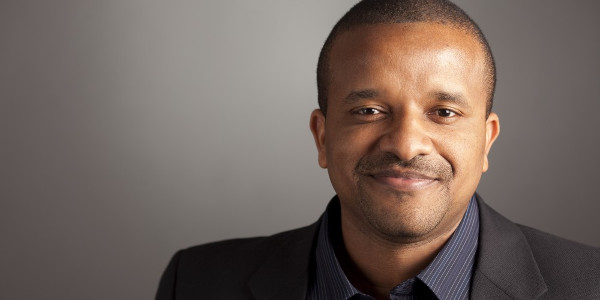How a Nigerian built an African e-commerce empire from his bedroom
As an Africa business coach and consultant I have the pleasure of wandering through African business news and related success stories as part of my job. And once in a while, you stumble across a story that simply sticks, because it is that good.
One of these is of Chris Folayan, founder and CEO of Mall for Africa, a new business empire on the rise that started from humble beginnings: his spare bedroom serving as his launch pad. From there, Mall for Africa would take off to amazing heights.
I caught up with Chris during a breakfast on a sunny day in Silicon Valley, California to find out more.
Chris, it was wonderful meeting you at the African Diaspora Investment Symposium in Silicon Valley in January where you left people in awe sharing the journey that lead to the immense success of your company, Mall for Africa. Give our readers some insight into your business.
Mall for Africa is an online platform designed to help shoppers in Africa buy goods online from major US and UK retailers. By ordering through us, they do not need to worry if the products they desired would be shipped to Africa at all, or if the foreign retailers would accept their local credit cards or mobile payments.
We take care of the entire process via a very simple app.
By doing this we also provide a rare avenue for leading US and UK brands to access a new consumer base in Africa at zero risk, because they ship through us. Mall for Africa takes away all the risks of fraud, charge backs, customs clearing and the inability to verify if a shipment has even arrived. We handle it all.
Now stores and major brands such as Carters, Fashion Fair Cosmetics, Hawes & Curtis, or Topshop in the UK are finally selling to consumers in Africa.
What inspired you to get this started?
I was born and raised in Nigeria and moved to America to attend college. However, I was regularly travelling home to visit my family. Each time I let them know that I’d visit I received long lists of items to bring with me from the US. This trend somehow grew in my personal circles.
Well, I found it difficult to turn people down, and one day I took more than the allowed number of suitcases to the airport and was told I couldn’t board the plane even if I was willing to pay for extra luggage.
Bottom line is that the list had become so long that I knew there was a strong demand, and when such demands are not met you have an amazing opportunity to do business.
I ended up building an app, and I first tested it with family members. It worked! Those who tried it loved it.
Today I’m proud to say that we operate out of huge warehouses in the US and UK, and we are growing the fast shipping of goods daily into Nigeria and elsewhere in Africa.
You launched the company with no significant resources, and have built a powerhouse of which major Western brands want to be part of. Tell us more about your growth story thus far.
Once I had completed testing and developed the site and app for one store I recall vividly making it go public after my friends and family tested it. That day I was expecting a few sales but none came in, so I reached out to family to help me spread the word. It took a few days to get orders in and marketing the platform soon became my priority to increase sales. Every day more customers registered and used the site, and pretty quickly it snowballed from there.
As a result, I moved storage from my spare bedroom to the garage, then expanded into my living room and so on. In less than a year we had our first warehouse. Today Mall for Africa is the largest online shopping platform in Africa with over 8.5 billion items for sale at over 150 US and UK stores.
Getting the Western brands to sign up with us was a major challenge. There was a lot of stereotype thinking we had to break, in particular regarding Nigeria. Now they know that Mall for Africa is taking on all risks for them, and by using us Africa is no longer a region to ignore. With us, companies have seen seven-figure increases in their sales.


